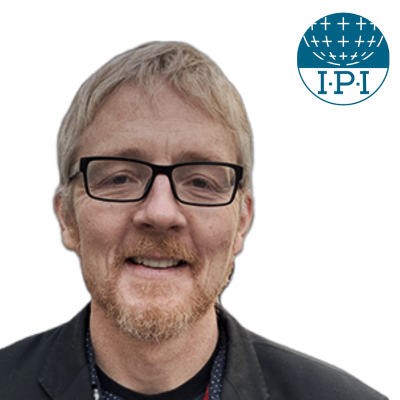In mid-September 2022, the European Commission unveiled its legislative proposal on the European Media Freedom Act (EMFA), a new flagship initiative to protect media pluralism and independence in the European Union. The EMFA seeks to respond to growing concerns over malign foreign influence, hostile state acts towards journalists, and the use of state media for propaganda, both within and outside the EU’s borders.
The proposal is being fast-tracked by the Commission demonstrating the political priority ascribed to safeguarding media independence and pluralism, key pillars of European democracy. However, what has been labelled as a “watershed” in Brussels, has only been cautiously welcomed by stakeholders – who want improvements to the text.
Whitehouse sat down with Leon Willems, Senior Advisor International Partnerships at Free Press Unlimited and Oliver Money-Kyrle, Head of Europe Advocacy and Programmes at the International Press Institute, two leading organisations fighting for independent, accessible journalism and the protection of press freedom, to discuss the proposal. They discussed their concerns with us, making urgent recommendations for its improvement, and calling on stakeholders to get involved in the coming negotiations.
Highlights of the discussions with Free Press Unlimited and the International Press Institute are set out below. The interview with Leon Willems and Oliver Money-Kyrle is available here.
Reflections on the European Media Freedom Act
The ambitions of the European Commission to take more proactive steps to safeguard media freedom and independence have been widely welcomed by stakeholders, with Oliver Money-Kyrle describing the Commission’s proposal as “a welcome attempt to address the media freedom crisis that has grown increasingly apparent”. The EMFA signals the Commission’s determination to extend its reach to a policy area that has traditionally been reserved for Member States alone. The EMFA would give the Commission legal tools to address the danger to media pluralism caused by the concentration of media ownership at the national level, and the threat of politically driven media capture, situations where the economic and regulatory levers of the state can be abused to gain control over the media – provisions that have been warmly welcomed by both Free Press Unlimited and the International Press Institute.
Despite the ground-breaking nature of the proposal, both stakeholders were not shy in pointing out glaring areas of weakness. As Oliver Money-Kyrle summarised: “There is no enforcement mechanism on ownership transparency, there are loopholes in state funding and the powers of the new European Board for Media Services are limited to issuing opinions which can be shrugged off by national regulators that disagree.”
A point of criticism shared by both relates to the EMFA’s provisions on state funding of the media, where they agree that a broader definition of state funding is needed to effectively shield the media from state interference. According to Leon Willems: “We were concerned to see that these obligations only apply for state ‘advertising’, and not for other forms of funding and broader state ‘aid’. The EMFA has missed an opportunity here to address this fundamental issue of media capture through state aid.”
In an increasingly digitalised world, the EMFA also seeks to regulate large online platforms to protect independent journalism and safeguard against arbitrary content removal. However, when asked whether the EMFA’s provisions are far-reaching enough to ensure that quality journalism has a place in today’s digitalised media environment, both the International Press Institute and Free Press Unlimited had a clear response: No. The stakeholders would have welcomed clearer provisions to level the playing field between journalists and platforms, limit the growth of news deserts, and eliminate spaces for disinformation online.
The long road to media pluralism and independence ahead
Looking ahead, the European Parliament and the Council of the EU will soon commence their legislative negotiations on the EMFA. In light of the prevailing criticisms from stakeholders, heated discussions and tough negotiations are to be expected. Leon Willems explained: “This is a rather unpredictable process, as there are many joint and vocal stakeholder groups active at the moment, which are against the EMFA in the current form”. Shared concerns also relate to the role of the Member States in the negotiations. They are likely to push back against regulating national media markets. According to Oliver Money-Kyrle, it will consequently be“the Council where the key battles are most likely to be held.”
There is a real opportunity for the European Union to take action and cement the role of independent media as a key enabler of democracy. Stakeholders are best advised to join forces and so enhance their influence on the negotiations to ensure that the Commission’s proposals will not be further diluted.
Should you wish to learn more about the EMFA, we can recommend the IPI-led hybrid conference on “Media Capture and the European Media Freedom Act”, taking place on 2 December, 09:00 am – 2:00 pm CET.
Political consultancy
Whitehouse Communications can help position you in the debate. As experts in political analysis and consulting, we can assist in building alliances, crafting messaging, generating support for your views and asks, and feeding your position into the policy-making process. For more information, contact Viviana Spaghetti at viviana.spaghetti@whitehousecomms.com.
About the stakeholders

Leon Willems is Senior Advisor International Partnerships at Free Press Unlimited, a Netherlands-based Press Freedom organisation working in over 40 countries globally. He initiated the International Coalition of Civil Society Organisations for the Safety of Journalists, which serves as a consultative group for the UN Plan of Action for the Safety of Journalists and the issue of Impunity, led by UNESCO. Free Press Unlimited is also one of the world’s leaders in emergency support to journalists in danger and is currently carrying out a cold case investigation project into the murder of journalists, a Safer world for the Truth.

Oliver Money-Kyrle has been working in media freedom for over twenty years. He joined IPI in September 2019, first as Turkey campaign coordinator and then as Head of Europe Advocacy and Programmes. He leads IPI’s advocacy around EU legislation including the Rule of Law mechanism, the safety of journalists’ recommendations, the Anti-Slapp directive and now the EMFA. He has been particularly focused on media capture faced by IPI’s members in central and Eastern Europe and how the EMFA can address it.


